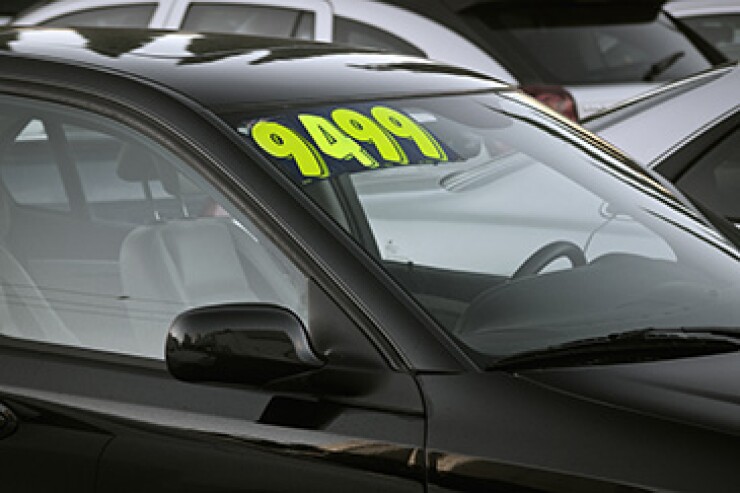S&P Global Ratings believes subprime lender American Credit Acceptance may have lower losses in its next auto-loan securitization, due to the inclusion of performing loans transferred from a recently called deal.
The $274.8 million American Credit Acceptance Receivables (ACAR) 2019-2 is projected to have a cumulative net loss range of 27%-28%, a decrease from the 28%-29% range for ACA’s first transaction of the year that lacked called collateral.
ACA plans to transfer 7.25%-8% of the original pool balance from one of its recently paid off 2015 transactions into the new 2019-2 pool, providing a boost to seasoning as well as a portfolio of performing loans to the deep subprime pool backed by new and used auto and motorcycle loans.
“Overall, we believe the ACAR 2019-2 collateral characteristics are better than those of ACAR 2019-1,” S&P’s report stated.
Kroll Bond Rating Agency, which did not rate the prior ACAR transaction, gave a cumulative net loss range expectation of 25.5%-27.5%.
The Class A notes benefit from 64.1% credit enhancement, which will expand to a target of 68.35%.
The notes are backed by an initial pool of receivables totaling $234 million at closing, with another $66 million in new accounts expected to be added during a three-month prefunding period after closing.
The weighted average APR of the initial pool is 23.74%, with WA original terms of 69.94 months – consistent with recent ACAR pools. The WA FICO of 451 is down slightly from recent ACAR transactions, including 543 in the $255 million ACAR 2019-1 that priced in March.

The WA seasoning, due to the additional called collateral, is 5.86 years, compared to 0.61 years in the Spartanburg, S.C.-based lender’s first transaction this year. Used vehicles are 96% of the new pool.
The $274.8 million in notes include $112.2 million in triple-A rated Class A notes due July 2022.
American Credit Acceptance finances borrowers primarily through its originations through CarMax retail used-car center locations (the Tier 1 channel) as well as through its franchised auto-dealer programs (Tier 2).
ACA also financed borrowers on the lower ranges of FICO credit scores on its “Core” program that places them into higher-mileage vehicles with lower prices and shorter-term contracts. Receivables balances from “Core” borrowers made up only 1.9% of the collateral pool.
ACAR’s transaction will add to $11.8 billion in subprime auto-loan ABS transactions to price so far in 2019. More than $32 billion in subprime auto ABS deals were issued in 2018.





